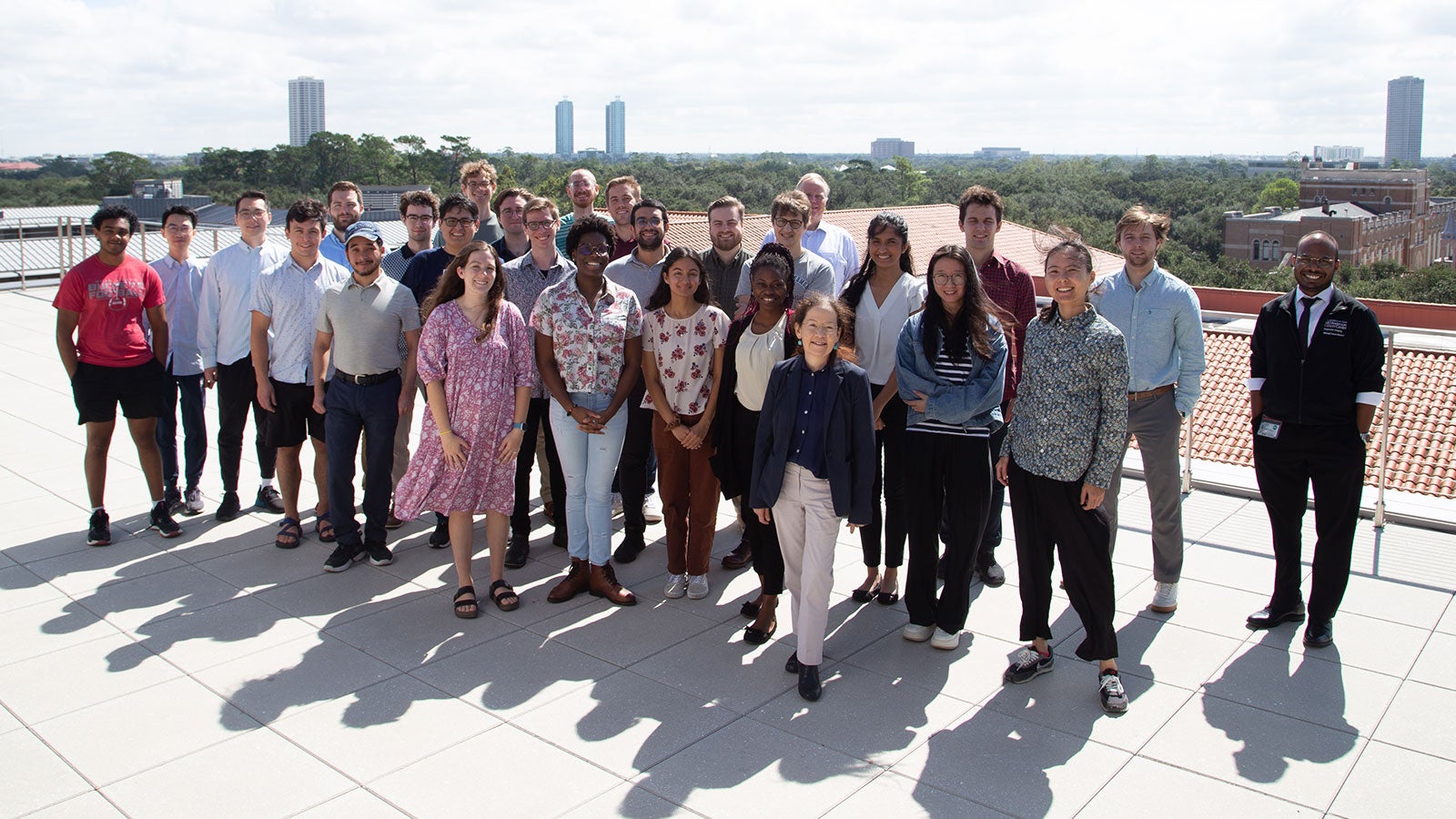For the second year in a row, Rice University’s Department of Computational Applied Mathematics and Operations Research (CMOR) sponsored the Research Training Group (RTG) workshop for Numerical Mathematics and Scientific Computing (NASC).
This workshop is the signature event in a program funded by a five-year, $2.3 million grant from the National Science Foundation, which supports numerical mathematics and scientific computing research conducted by undergraduates, graduate students and postdocs. This year’s workshop features 20-minute sessions by nearly 45 presenters, doubling the program size of last year’s workshop.
“The RTG workshop is meant to give students and postdocs the opportunity to practice presentation skills and network with peers,” said Beatrice Riviere, principal investigator and Noah Harding Chair and Professor of CMOR.
An interdisciplinary group of presenters assembled for the workshop, including researchers invited from peer institutions nationwide and affiliate faculty in the Texas Medical Center. Talks included mathematical modeling and computational solutions to pressing problems across industries, from biomedicine to flood mitigation.
“The workshop theme is numerical mathematics and scientific computing, but we see a wide variety of applications covered in the presentations,” said Riviere. “As applied mathematicians, we develop an understanding of mathematical properties and apply algorithms to solve problems across disciplines. This workshop is representative of the wide range of work we do.”
Mani Puram is a second year pre-med student studying computational applied mathematics and statistics at Rice. He presented a talk and a poster based on research in modeling fetal transitional circulation with coupled ordinary differential equations, which could improve health outcomes for newborns.
“This workshop gave me my first experience of presenting an academic poster,” said Puram. “I want to continue to do research in the future, so this was a fun and low-pressure opportunity to get acclimated to an academic conference environment.”
The NSF grant also supported the hiring of two CMOR postdoctoral researchers this year. One of the researchers, Samuel Van Fleet, studies numerical methods for approximating solutions to partial differential equations, which can be used across various applications—from the transportation of radiation to fluid dynamics and plasma physics.
“Presenting my research allowed me to not only illustrate why the work that I am doing is important, but also to gain useful insights from fellow researchers about my presentation,” said Van Fleet. “The workshop was a great way for me to get a better idea of what is going on in the applied math community and discover other techniques and projects that could impact my research.”
The workshop was held Oct. 4-5, 2024, in the O’Connor Building at Rice University. Riviere’s co-principal investigators include Jesse Chan, associate professor of CMOR, and Matthias Heinkenschloss, Noah Harding Chair and Professor of CMOR.

